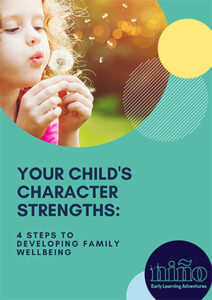Why Early Childhood Education is Important

A child’s early years are the foundation for his or her future development, providing a strong base for lifelong learning and learning abilities. Well established research continues to emphasise the importance of early childhood education as an essential building block of a child’s future success.
What is Early Childhood Education
Early childhood education is the process of nurturing and stimulating a child’s development from birth to age five. It includes both formal and informal learning experiences, such as those provided by preschools, early learning centres and home-based programs. While there is great variation in the environments in which children live and grow, the interaction between young children’s developing brains and the environments in which they learn has significant impact on development.
What are the benefits of Early Childhood Education
The early years of a child’s life are a period of rapid brain development. Quality early childhood education provides an environment that stimulates brain development, promoting cognitive, social, emotional and physical growth. It lays the foundation for future learning, critical thinking and problem-solving skills.
Preparation for Formal Schooling
Early childhood education prepares the child for formal schooling. It helps them develop essential skills such as language, literacy, numeracy and social interactions. Children who have attended quality early childhood education tend to adjust better to the school environment.
Social and Emotional Development
It provides children with opportunities to interact with their peers and learn essential social skills such as sharing, cooperation, and empathy. It helps them develop emotional intelligence and self-regulation, which are vital for building positive relationships, managing emotions, and resolving conflicts later in life.
Early childhood education fosters a love for learning and curiosity in children. It nurtures their natural sense of wonder and helps them develop a positive attitude towards education. This enthusiasm for learning established in the early years can set the stage for a lifelong passion for knowledge and continuous personal growth.
Health and Wellbeing
It also plays a role in promoting children’s health and wellbeing. It provides access to nutrition, health screenings and early intervention services, ensuring that children’s physical and developmental needs are met. It promotes healthy habits and instils a sense of personal hygiene and wellbeing. Studies have shown that children who attend high-quality early childhood education programs are less likely to be obese, have behavioural problems and are more likely to become more confident and resilient adults.
Strengthens Parental-Child Bonds
Early childhood education encourages and supports parental involvement. It strengthens the bond between parents and children, enhances parenting skills, and provides parents with resources and guidance for their child’s development. It empowers parents as their child’s first and most influential teachers.
Social Productivity
Early childhood education is also important for society as a whole. Studies have shown that investing in early childhood education can lead to increased economic productivity, reduced crime rates and improved health outcomes.
The Importance of High-Quality Early Childhood Education
Not all early childhood education programs are created equal. For early childhood education to be effective, it must be high-quality. High-quality early childhood education programs have the following characteristics:
- Well-trained and experienced teachers
- A focus on
- play and exploration
- language and literacy development
- maths and problem-solving
- social and emotional development.
- Well-trained and experienced teachers
- A focus on
- play and exploration
- language and literacy development
- math and problem-solving
- social and emotional development
How to Find High-Quality Early Childhood Education
If you are considering enrolling your child in an early childhood education program, it is important to do your research and find a program that is high-quality. There are a few things you can do to find a high-quality program:
- Ask for recommendations from friends, family and other parents
- Visit different programs and observe the classes
- Talk to educators and staff
- Read the program’s curriculum
- Ask about the program’s accreditation and licensing.
- Ask for recommendations from friends, family and other parents
- Visit different programs and observe the classes
- Talk to the educators and staff
- Read the program’s curriculum
- Ask about the program’s accreditation and licensing.
Early childhood education is an important investment in the future of our children and our society. By investing in early childhood education, we can help ensure that all children have the opportunity to reach their full potential.
Early childhood education supports brain development, prepares children for school, promotes socialization and emotional growth, addresses inequalities, fosters a love for learning, enhances health and wellbeing and involves parents in their child’s education. Investing in quality early education programs yields significant long-term benefits for individuals, communities and societies as a whole.

